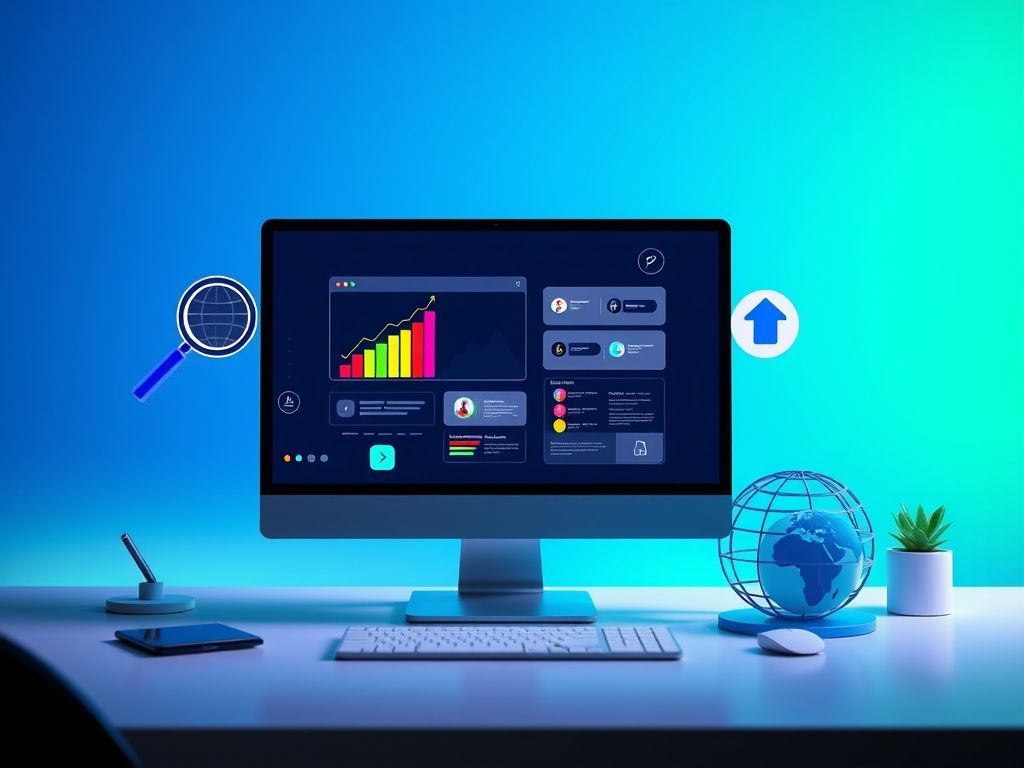On-Page SEO: A Definitive Glossary
On-Page SEO refers to the practice of optimizing individual web pages to rank higher and earn more relevant traffic in search engines. It involves both the content and the HTML source code of a page. Understanding On-Page SEO is essential for anyone involved in digital marketing, web development, or content creation, as it directly influences the page’s visibility and user experience.
Understanding the Importance of On-Page SEO
In the competitive landscape of digital marketing, On-Page SEO is crucial for several reasons:
- Improved Visibility: Properly optimized pages are more likely to appear in search engine results, increasing the visibility of your content.
- Enhanced User Experience: On-Page SEO is not just about search engines; it also focuses on improving the user experience, which can lead to higher engagement and lower bounce rates.
- Higher Conversion Rates: By making your content more relevant and accessible, you can increase the likelihood of conversions, whether that means sales, sign-ups, or other desired actions.
Key Elements of On-Page SEO
To effectively implement On-Page SEO, several key elements must be considered:
1. Title Tags
The title tag is one of the most important On-Page SEO elements. It appears in search results and should accurately reflect the content of the page while including relevant keywords. For example, a title like “Best Practices for On-Page SEO in 2023” clearly conveys the page’s purpose.
2. Meta Descriptions
Meta descriptions provide a summary of a web page’s content. Although they do not directly impact rankings, a well-crafted meta description can improve click-through rates. For instance, “Learn how to optimize your website with effective On-Page SEO strategies to improve your search visibility and user experience!” invites users to click.
3. Header Tags (H1, H2, H3)
Header tags help organize content for both readers and search engines. The H1 tag should be reserved for the main title of the page, while H2 and H3 tags can be used for subheadings. For example, using H2 for “Key Elements of On-Page SEO” helps structure the article and makes it easier to navigate.
4. Content Quality
High-quality, relevant content is vital for On-Page SEO. This includes using appropriate keywords, answering user queries, and providing valuable information. For instance, a blog post about On-Page SEO should include detailed explanations, practical examples, and actionable tips.
Effective Keyword Usage
Using keywords effectively is a cornerstone of On-Page SEO. Here are some best practices:
- Keyword Placement: Include keywords in essential places such as the title, first paragraph, and headings.
- Semantic Variations: Use related terms and synonyms to create a rich, relevant context for search engines.
- Avoid Keyword Stuffing: Ensure that keyword usage feels natural and does not detract from the readability of the content.
Practical Applications of On-Page SEO
Integrating On-Page SEO into your routine can significantly improve your website’s performance. Here’s how:
1. Conducting an SEO Audit
Regularly perform an SEO audit of your website to identify areas for improvement. This includes checking title tags, meta descriptions, header tags, and overall content quality.
2. Creating Content Calendars
Plan your content around trending keywords and topics relevant to your audience. This ensures that your content remains fresh and optimized for search engines.
3. A/B Testing
Experiment with different title tags, meta descriptions, and content formats to determine what resonates best with your audience. Analyze the data to refine your On-Page SEO strategy.
4. Utilizing Analytics Tools
Leverage analytics tools like Google Analytics and Search Console to track the performance of your pages. Monitor metrics such as organic traffic, bounce rates, and conversion rates to gauge the effectiveness of your On-Page SEO efforts.
Related Concepts in Digital Marketing
Understanding On-Page SEO also involves familiarity with several related concepts:
- Off-Page SEO: Refers to actions taken outside of your website to impact your rankings, such as backlinks and social media engagement.
- Technical SEO: Involves optimizing the technical aspects of a website, such as site speed, mobile-friendliness, and indexing.
- User Experience (UX): A crucial element that overlaps with On-Page SEO, focusing on how users interact with your website.
Conclusion: The Impact of On-Page SEO
In summary, On-Page SEO is a vital component of any digital marketing strategy. By understanding its elements and best practices, individuals can enhance their website’s visibility and user experience. The ongoing nature of SEO necessitates regular updates and improvements, making it an integral part of web development and content strategy.
As you move forward, consider how you can implement these On-Page SEO principles into your projects. Whether you’re a student, a professional, or a web developer, mastering On-Page SEO is key to success in the digital landscape.









